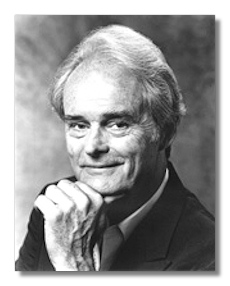
The Internet's Premier Classical Music Source
Related Links
-
Find CDs & Downloads
Amazon - UK - Germany - Canada - France - Japan
ArkivMusic - CD Universe
Find DVDs & Blu-ray
Amazon - UK - Germany - Canada - France - Japan
ArkivMusic-Video Universe
Find Scores & Sheet Music
Sheet Music Plus -
Recommended Links
Site News
Lee Hoiby
(b. 1926)

American composer and pianist. Hoiby is known primarily for his stage works, choral music, and songs. He studied piano with Ferruccio Busoni's pupil Egon Petri. He was one of the rare composition students of Gian Carlo Menotti. Possibly due to that influence, he designed much of his early music for the stage, including the operas The Scarf and A Month in the Country. The 1967 ballet After Eden was fairly successful, even to the point of getting recorded on the old Desto label. Most of his music, however, including the major pieces Summer and Smoke and Galileo Galilei, has not made it to commercial recording.
Critics have seized on Hoiby's musical links to Samuel Barber and Menotti – perhaps too hard – and have labeled the music neo-Romantic, as if he did nothing but sing his diatonic head off. Hoiby has written all kinds of music (as have Barber and Menotti, for that matter), some of it quite dense harmonically. I distrust the label neo-Romantic, since all three composers seem obviously attracted and indebted to the wit of Igor Stravinsky's neo-classicism in many of their works. Furthermore, "neo-Romantic" implies a clubhouse with rules, and the three men are nothing if not individuals with clearly-defined artistic personalities. With Hoiby, the truth of the label tends to come in the lyrical passages – slow movements, second subjects, and the like. "Lyric" for Hoiby means song, and many of these passages have the same yearning and ardency of similar moments in Rachmaninoff, although the two composers' idioms differ. For Hoiby, "lyrical" never becomes heavy or overly-sweet. Like Haydn, he seems to possess an abundance of good humor which anchors him and keeps him from being carried away in a gust of sentiment and nostalgia. ~ Steve Schwartz
Major works include The Scarf (1958), A Month in the Country (1964), After Eden (1967), Summer and Smoke (1970), Design for Strings (1953), the two piano concerti (1958, 1980), Galileo Galilei (1975), the Magnificat and Nunc dimittis (1983), and the opera The Tempest (1986).
Recommended Recordings
Recommended Work
- Recommendation to come…
-













